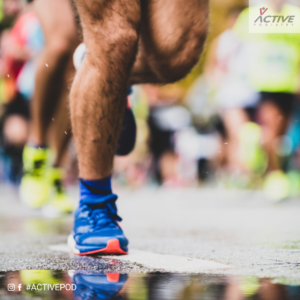How to recover from a Marathon
How to recover after a Marathon

So you’ve done it! You’ve completed the Marathon. Whether it is your first one or your 10th, crossing the finish line after 26.2 miles of running is an amazing achievement and puts you in an elite group of runners worldwide who have achieved this challenge.
It is also true that the Marathon, and the training miles before it, place a significant strain on your body, and if you want to avoid injury and frustration, it is important that you have a plan to optimise your recovery and ‘taper’ yourself back into running again.
What happens to your body after a Marathon?
Following the marathon, your soft tissues, especially your muscles and tendons will be fatigued and micro cellular breakdown will be occurring in the tissues together with an inflammatory response as the body starts its healing process. During this time your immune system will also be lowered, and you will be more vulnerable to any infections that may be circulating.
How long does it take to recover after a Marathon?
Research studies show that this recovery process can take up to 14 days to full recovery. During this time you will be lacking in muscle power and strength, and you will likely feel more tired than usual.
The Recovery Plan
Don’t run for the first few days! This is a really bad idea and will increase your risk of injury and illness. A rule of thumb would be 3 days but of course it will vary among individuals and you may need longer.
Get plenty of sleep. Sleep is the very best way to promote cellular regeneration and reduce inflammation in the body. Treat yourself to warm baths or hot showers to help increase the pro inflammatory healing response in the tissues and allow stressed muscles and tendons to relax.
Gentle stretching and foam rolling will help to relieve aches and pains along with reducing tightness. Avoid deep tissue massages until you are sure your muscles feel calm.
Don’t worry about losing fitness. A couple of weeks won’t make any significant difference to your training and will likely help you recover more quickly when you get back on the training wheel after rest.
Finally, be patient! Allow as much time as you need for recovery, and when you get back to running, start with slow easy runs. Leave your watch at home, chill out and daydream about your glorious day and the next challenge that lies ahead!
I have a small favour to ask you.
I produce these blogs for the benefit of the running community and I want as many runners as possible to benefit from these. It would really help me if you could take a moment to share these articles with your friends on social media and any relevant groups or forums that you may be subscribed to.
Please feel free to post any questions and comments if these blog post raise any issues for you. Thanks from a fellow runner!
